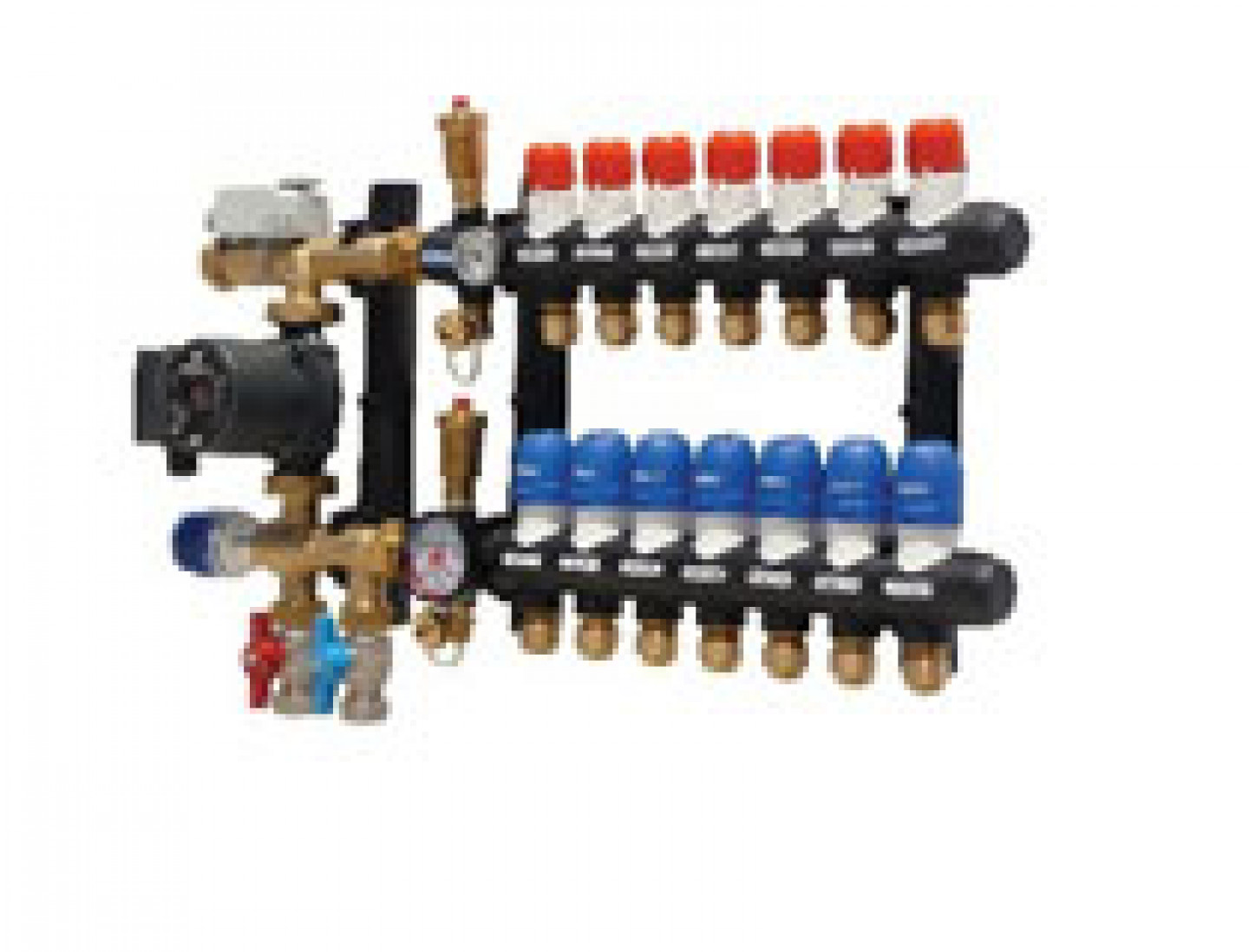The multi-million pound Parmiter Street development of 105 three, four and five bedroom apartments in Tower Hamlets, London, chose Thermoboard’s unique pocketed polystyrene underfloor heating (UFH) system with a liquid screed floor. This enabled the project to use an advanced acoustic construction in order to obtain additional credits to achieve a level 4 rating under the Code for Sustainable Homes, whilst saving the development around £70,000 compared to the cost of using other solutions on the market.
Business Development Manager for Thermoboard, Mark Branson, explains:
“Our unique pocketed polystyrene UFH system consists of manufactured insulation panels with channels for pipe and pockets at regular intervals to allow the screed to fully surround the pipe. Importantly special panels were manufactured to carry pipe through transit areas thus preventing overheating corridors and areas close to the manifolds. Fitting the pipes into the pre-routed channels also speeds up the pipe-laying process and the pocket design reduces the screed volume required so labour and screed costs are cheaper. In addition, drying times are reduced by using a lower depth of screed which means the next stage of the build can start sooner. The combination of all these factors equates to significant cost savings, especially on such a multi-level development.
“Although, as with most projects, time and costs were the primary drivers on this development, there were other challenges which we had to keep in mind when agreeing on the best solution with the client. The Parmiter Street developer, Team Homes, and architect John Robertson, had specified a certain floor depth for each level so it was important that the total flooring solution, including insulation, acoustic construction, UFH and the floor covering, did not exceed this, whilst achieving the aforementioned Level 4. By using a system in which the pipes integrated into the insulation, rather than on top of it, then a lower volume and depth of screed could be used. Therefore the solution for this particular project not only saved money but it meant that the architect’s design wasn’t compromised in any way.
“The other advantages of pocketed polystyrene were also evident,” continued Mark. “On this occasion, 35mm pocketed polystyrene was used to meet the floor level requirements but Thermoboard offers different panel depths so customers can be sure that their project meets build needs as well as insulation values required by building regulations. Fixed pipe centres assure thermal performance and consistency, while both traditional and liquid screeds act as good conductors of heat so rooms are kept at an optimum temperature. A dry construction floor was considered as an alternative for this job but this would have meant lower heat outputs, so pocketed polystyrene was again more appropriate. The panels also protect the pipe from foot traffic and on-site equipment while holding the pipe in place so tripping hazards are prevented.”
Nick Beard from Team Homes said: “The FullSpec service from Thermoboard included advising us that there was a better solution to meet our requirements than the one we had originally considered – and one which would ensure we achieved the floor requirement , and Level 4 while ultimately saving us money. FullSpec provided all the design work and technical support both on and off-site, making this part of the build run as smoothly as possible.”
UFH offers improved energy efficiency over conventional radiators; typically saving up to 25 per cent on fuel bills. This is due to that fact that the floor only needs heating to 26-28⁰C and requires water heated to 45-65⁰C which is significantly less than for other heating types. It provides all-round, comfortable warmth, an unhindered room layout and a healthier environment as less dust circulates in the air.
The Thermoboard portfolio enables the use of UFH in any building although choice of system is influenced by the type of floor construction – screed or timber. For screeded floors, staples, system plate or pocketed polystyrene UFH is available and with timber floors, including joisted, battened or floating floors, foiled polystyrene or modular wood are recommended. Both screed and timber floors are typically overlaid with a final floor finish such as carpet, vinyl or linoleum, stone or ceramics or timber or laminate.
“There are a wide number of products available from Thermoboard – some of them, like pocketed polystyrene, unique in today’s market,” continued Mark.
“Combined with all the other products on offer from other companies, we know that deciding which system is best for a particular job can be confusing. As well as providing a design consultancy service, our FullSpec service also offers technical advice and support to help architects, developers and installers select and install the best system for the job. For individual projects, we can provide bespoke fit-and-forget solutions - all of which are of consistently high quality. For example, with the pocketed polystyrene system, we can route out panels so the pipe can be laid exactly to the CAD design. And with our PI insured system designs, our solutions really do offer peace of mind.”
The Parmiter Street development offers affordable housing with spacious living environments. As well as UFH, the development also features other energy saving features such as A-class white goods and low water usage sanitary ware.
